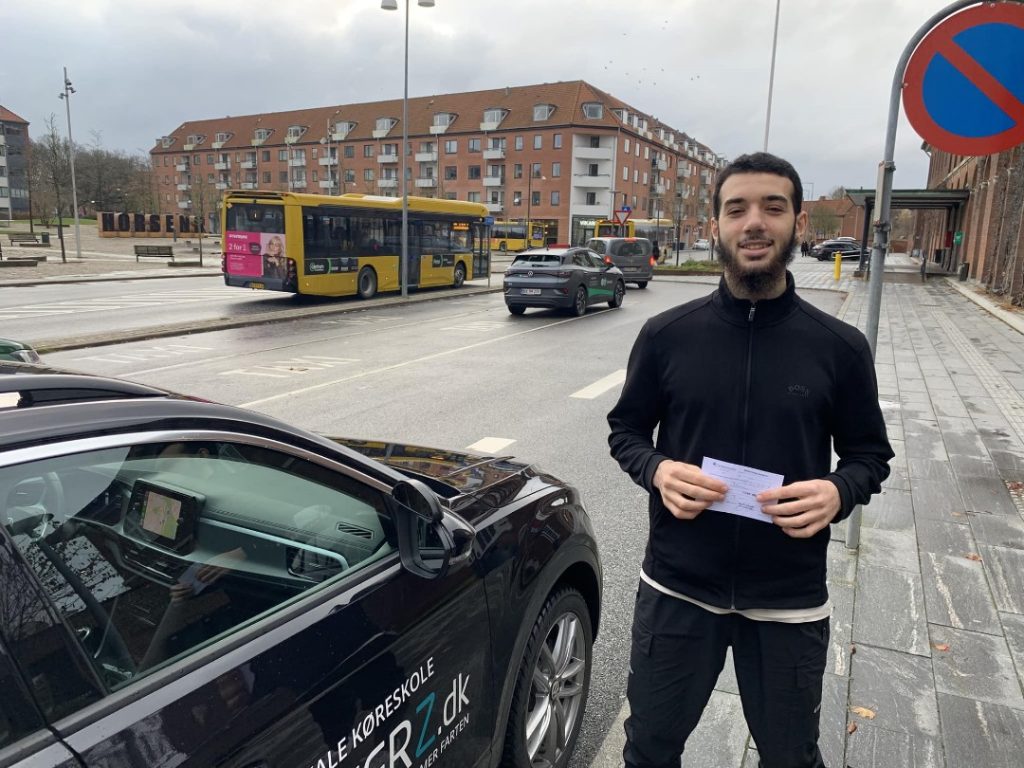Turning 70? Here’s Your Essential Guide to Renewing Your Driving Licence
Reaching 70 is a significant milestone, often celebrated with family, friends, and reflections on a life well-lived. For many, it also marks a point where you need to take a fresh look at your driving licence. While the thought of a “renewal” might sound daunting, it’s a straightforward process designed to keep you and everyone else on the road safe.
This comprehensive guide will walk you through everything you need to know about renewing your driving licence once you hit the big 7-0, covering the ‘why,’ the ‘how,’ and important considerations to ensure you continue driving safely and legally.
Why the Change at 70? Understanding the Rationale
Unlike younger drivers whose licences typically last until they turn 70, once you reach this age, your driving licence doesn’t automatically expire in the same way. Instead, you’ll need to renew it every three years. This isn’t about questioning your ability to drive; it’s a proactive measure put in place by the Driver and Vehicle Licensing Agency (DVLA) to ensure that drivers’ health and eyesight continue to meet the required standards.
As we age, our health can change. Eyesight might deteriorate, reaction times can slow, and certain medical conditions become more prevalent. These changes can subtly impact driving ability. The triennial renewal process provides a regular opportunity for you to declare any health conditions and eyesight issues, ensuring that you remain fit to drive. It’s a system designed for everyone’s safety, encouraging self-assessment and, where necessary, professional medical review.
The Renewal Process: Your Step-by-Step Guide
The good news is that renewing your driving licence at 70 and over is completely free. You won’t have to pay a penny. The DVLA aims to make the process as simple as possible.
1. When to Expect Your Reminder: The DVLA typically sends out a D46P application form about 90 days (three months) before your 70th birthday. If you’re over 70 and need to renew, you’ll receive it roughly 90 days before your current three-year licence is due to expire. It’s crucial to act on this reminder promptly.
2. How to Apply: You have two primary ways to renew your licence:
- Online: This is often the quickest and easiest method. You can apply on the official GOV.UK website. You’ll need:
- A valid UK passport or the document used to get your current licence.
- Your National Insurance number.
- Addresses of where you’ve lived for the last 3 years.
- Your current driving licence.
- By Post: If you prefer, you can complete the D46P form sent to you by the DVLA and mail it back. If you didn’t receive a form or have lost it, you can order one online or pick up a “D1 application for a driving licence” form from most Post Offices.
3. Key Requirements: Regardless of how you apply, the core requirements are:
- A Declaration of Your Health: This is the most crucial part of the application. You must declare any medical conditions that could affect your ability to drive safely.
- Eyesight Declaration: You’ll need to confirm that you can read a number plate from 20 metres (approx. 66 feet) away, with glasses or contact lenses if needed.
- No Fee: As mentioned, this renewal is free.
Here’s a quick overview of the application methods:
| Feature | Online Application (GOV.UK) | Postal Application (D46P or D1 form) |
|---|---|---|
| Speed | Generally fastest (licence often within a week) | Slower (can take up to 3 weeks or more) |
| Cost | Free | Free (postage cost applies if sending yourself) |
| Required Docs | Passport, NI number, addresses, current licence | Existing D46P form or D1, current licence |
| Convenience | Anytime, anywhere with internet access | Requires filling out physical form, posting it |
| Photo | Digital photo taken from passport database | Must provide a new passport-style photo |
Understanding the Health Declaration: Honesty is Key
The health declaration section of your application asks you to confirm whether you have any medical conditions that might affect your driving. This isn’t about trying to catch you out; it’s about making sure your driving ability isn’t compromised by health issues that could put you or others at risk.
What to Declare: You must declare any medical condition that has a potential impact on your driving, even if it feels minor. This includes conditions such as:
- Eyesight problems (beyond needing glasses/contact lenses for routine distant vision, e.g., double vision, glaucoma, cataracts in both eyes).
- Diabetes (if treated with insulin or at risk of hypoglycaemia).
- Heart conditions (e.g., angina, pacemaker, previous heart attack).
- Neurological conditions (e.g., epilepsy, stroke, transient ischaemic attack – TIA, Parkinson’s disease, dementia, multiple sclerosis).
- Sleep disorders (e.g., obstructive sleep apnoea).
- Conditions affecting movement or coordination (e.g., arthritis, limb absence).
- Mental health conditions (e.g., severe depression, anxiety, or psychotic disorders if they affect concentration or awareness).
- Any condition where you’ve been advised by a doctor not to drive.
If in Doubt, Declare It! It’s always better to declare a condition and let the DVLA assess it than to withhold information. Failing to declare a notifiable medical condition is a criminal offence and can result in a fine of up to £1,000, and you could be prosecuted if involved in an accident.
What Happens Next? Once you declare a condition, the DVLA might:
- Grant your licence without further action.
- Contact your doctor for more information (you’ll usually need to give consent for this).
- Ask you to attend a medical examination or an independent driving assessment.
- Issue a short-term licence (e.g., for 1 year) so they can review your condition regularly.
- Refuse your licence if they deem you medically unfit to drive.
Eyesight Requirements: Can You See Clearly?
Your eyesight is paramount for safe driving. The legal standard is the ability to read a modern number plate from a distance of 20 metres (approximately 66 feet) in good daylight, with or without corrective lenses (glasses or contact lenses).
It’s highly recommended that you have regular eye tests, ideally every two years, especially as you get older. An optician can identify potential issues like cataracts, glaucoma, or macular degeneration that might not immediately affect your ability to read a number plate but could progress and impact your driving vision. Even if your eyesight feels fine, a professional check-up offers peace of mind.
Medical Examinations (If Required)
If the DVLA needs more information about your medical condition, they may write to your GP or consultant for a medical report. They might also ask you to undergo a medical examination with a doctor appointed by them. In some cases, they might even request an independent driving assessment to observe your driving skills in real-world conditions.
It’s important to cooperate fully with any requests from the DVLA. You will generally not be charged by the DVLA for medical reports or examinations they request. However, if your own doctor charges you for providing information, you are responsible for that fee.
Your New Licence: What to Expect
Once your application is approved, you’ll receive a new photo driving licence, usually valid for three years. This means you’ll go through the renewal process again when you’re 73, then 76, and so on.
What if Your Health Changes Between Renewals? It’s crucial to remember that you have a legal obligation to inform the DVLA immediately if you develop a new medical condition or if an existing condition worsens, and it could affect your ability to drive safely. Waiting until your next renewal could be dangerous and illegal.
Tips for Staying a Safe Driver Over 70
Continuing to drive offers immense freedom and independence. Here are some tips to help you stay a safe and confident driver:
- Regular Medical and Eye Check-ups: Don’t skip these. They are vital for detecting and managing conditions that could affect your driving.
- Consider a Refresher Course: Organisations like RoSPA or the IAM RoadSmart offer advanced driving courses or refresher lessons tailored for older drivers. These can boost confidence and update your skills.
- Adapt Your Driving Habits:
- Avoid driving at night or in adverse weather conditions if you find them challenging.
- Plan routes to avoid complex junctions or busy traffic areas.
- Leave more space between your car and the one in front.
- Take regular breaks on long journeys.
- Maintain Your Vehicle: Ensure your car is well-maintained, with good tyres, brakes, and lights, to minimise the risk of mechanical issues.
- Listen to Your Body: If you feel tired, unwell, or less focused, don’t drive. It’s better to delay a journey than risk an accident.
- Self-Assess Regularly: Be honest with yourself about your driving abilities. Ask a trusted passenger for feedback.
Frequently Asked Questions (FAQ)
Q1: Do I have to pay to renew my driving licence once I’m over 70? A: No, renewing your driving licence at 70 and over is completely free of charge.
Q2: What if I don’t receive the D46P reminder form from the DVLA? A: Don’t worry. You can apply online via GOV.UK, or pick up a D1 application form from most Post Offices to apply by post. It’s your responsibility to renew, even if you don’t receive a reminder.
Q3: Can I still drive while my licence renewal application is being processed? A: Yes, usually. You can continue to drive if you’ve sent your application to the DVLA, your previous licence hasn’t been revoked or refused for medical reasons, and you meet the medical standards for driving. This also applies if you are waiting for an investigation into a medical condition.
Q4: What happens if my doctor advises me not to drive? A: If your doctor advises you to stop driving for medical reasons, you must follow their advice and notify the DVLA immediately. Driving against medical advice can have serious legal consequences and could invalidate your car insurance.
Q5: What if I’ve moved house since my last licence was issued? A: You must always inform the DVLA of a change of address. If you’re renewing online, you’ll provide your current address. If using a paper form, ensure your new address is on it.
Q6: How long will my new licence be valid for? A: Once you are 70 or over, your driving licence will typically be valid for three years at a time.
Q7: Can I renew my licence early? A: You can renew your licence up to 90 days before your 70th birthday or the expiry date of your current three-year licence. It’s a good idea to apply early to avoid any last-minute stress.
Conclusion
Renewing your driving licence over 70 is a simple, free process designed to keep you and all road users safe. By understanding the requirements, completing the health declaration honestly, and staying proactive about your health and driving skills, you can continue to enjoy the freedom and independence that driving provides for many years to come. Drive safely and confidently!

